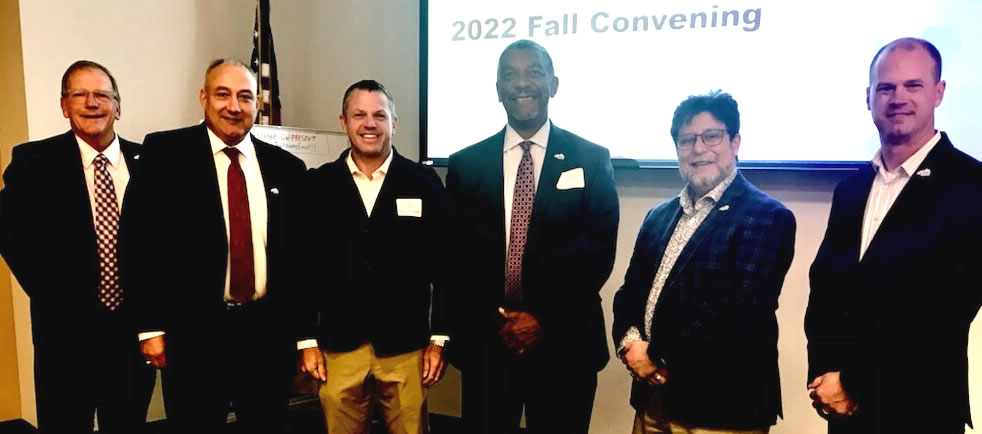Northern Kentucky makes strong progress increasing educational attainment
October 24, 2022

Kentucky Council on Postsecondary Education President Aaron Thompson was on hand at the Northern Kentucky Education Council’s (NKYEC) Fall Convening to deliver good news about progress toward increasing the number of Kentuckians with a college credential. To move Kentucky closer to the projected national average, the state set a goal for 60% of Kentuckians to have a postsecondary degree or credential by 2030, making Kentucky more competitive in an economy where most new jobs require some higher education.
“We’ve made big strides in increasing the level of educational attainment in our state over the past five years, particularly among our underrepresented minority populations,” said Thompson. “COVID slowed our progress a little, but if we continue to work together with our K-12 system and friends in industry, we are on the right track to achieve our goal without leaving any students behind.”
Thompson reported that between 2016 and 2021, six-year graduation rates have increased 7.6 percentage points overall and 9.5 percentage points among underrepresented minority students.

Northern Kentucky is leading the way in many measures of student success. At Northern Kentucky University, six-year graduation rates are up 12 percentage points since 2016, and bachelor’s degrees awarded to underrepresented minority students are up 24%. At Gateway Community & Technical College, short-term credentials and associate degrees are up 71% during that same period.
But despite the increases in graduation rates, the state has seen some declines in college-going rates, particularly among low-income men and adult students between the ages of 25 and 64.
“There is still much work to be done to help the public understand the value of higher education and what higher education even means,” Thompson said. “When I’m talking about college, I’m not just talking about four-year degrees. I’m also talking about short-term credentials and trade school. In Kentucky, there is a big demand for middle-skill jobs, but we’re struggling to get students in those areas.”
Thompson also emphasized the importance of working with industry leaders to keep Kentucky graduates employed in the state. STEM, arts and humanities, and business majors leave the state at the highest rates.
“At CPE, we’re working to make sure college programs align with market demand so that our students enter the workforce ready to succeed and meet the needs of the employers in their communities,” Thompson said.
NKYEC Executive Director Randy Poe encouraged the crowd of educators to serve as a model of success and advocate for students from all backgrounds.
“Equity starts with knowing where students are so we can meet their individual needs, not the other way around,” said Poe. “The work is only beginning. I’m so proud to work with our business, early childhood and non-profit leaders. Our ask of you is as you continue to go out, recruit one person to be sitting with you when we are having these conversations. We are only as strong as our weakest link in the chain.”
Last Updated: 10/24/2022
